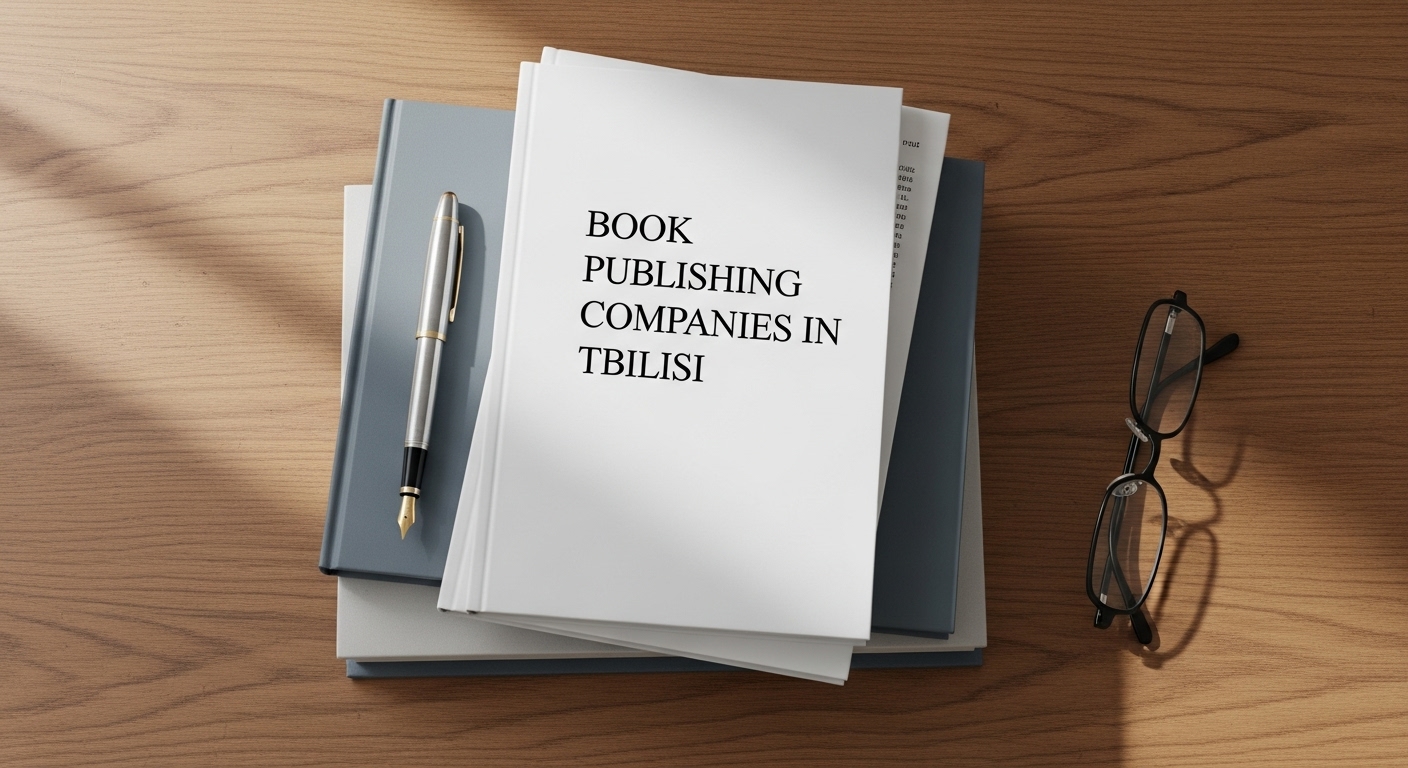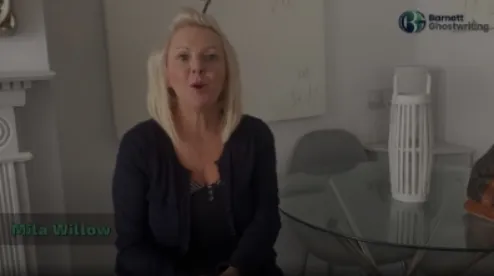
Tbilisi, the capital of Georgia, has long been a center of literature, art, and cultural exchange. In 2025, the city’s publishing industry continues to thrive, balancing tradition with modern trends in both print and digital publishing. From well-established publishing houses with decades of history to newer, boutique presses focusing on contemporary voices, Tbilisi offers a wide variety of options for authors and readers. This vibrant mix of publishers supports everything from scholarly works and school textbooks to literary fiction, poetry, and translations of international bestsellers. For writers looking to share their work and for readers seeking diverse stories, Tbilisi’s publishing scene remains an essential part of the city’s cultural life.
1. Barnett Ghostwriting
Barnett Ghostwriting presents itself as a full-service publishing and ghostwriting operation that supports authors from concept through manuscript to final production. Alongside ghostwriting services, the company positions itself as able to package and publish books for digital and print distribution; its model appeals to authors seeking end-to-end editorial, design, and marketing help rather than only traditional acquisition.
- What they publish: Memoirs, business and self-help, commercial fiction, and packaged author projects.
- Strengths: Hands-on manuscript development, editorial packages, and support for hybrid/self-published routes.
- Ideal for: Authors who want a guided, start-to-finish publishing experience and those who value editorial collaboration and ghostwriting support.
2. Bakur Sulakauri Publishing
Bakur Sulakauri is one of Georgia’s best-known independent publishers, with a wide catalogue that includes fiction, children’s literature, and school textbooks. The house has been active in translating international works into Georgian and in promoting contemporary Georgian writers. It frequently participates in local book fairs and cultural initiatives, which helps place new authors into bookstores and public programming.
- What they publish: Literary fiction, children’s books, cookbooks, educational materials and translations.
- Strengths: Strong distribution ties within Georgia and a reputation for curating literary titles.
- Ideal for: Literary authors, translators, and writers aiming for visibility in Georgian-language markets.
3. Artanuji Publishing
Artanuji has a solid reputation for academic, historical and cultural titles as well as literary works. Their list often includes scholarly monographs, history, and works that speak to the South Caucasus region; they maintain an editorial focus that suits researchers and culturally minded authors. The company’s catalog and outreach make it a go-to for academics and readers seeking serious non-fiction.
- What they publish: Academic books, history, military studies, and selected fiction.
- Strengths: Editorial depth in research-driven projects; established connections with academic circles.
- Ideal for: Academics, historians, and authors of nonfiction rooted in regional studies.
4. Intelekti Publishing
Intelekti (Intelekti Publishing) is a prolific house known for a broad annual output, including school textbooks, fiction, and a steady number of translated works. Founded in the 1990s, it has grown into a major presence in Tbilisi’s book market by supporting both educational publishing and general trade titles. This makes it particularly useful for authors whose work has educational value or cross-over potential.
- What they publish: School and university textbooks, fiction, poetry, and translated literature.
- Strengths: Large-scale production capacity and experience with educational publishing.
- Ideal for: Authors of pedagogical content, textbooks, and cross-genre writers with academic appeal.
5. Diogene Publishers
Diogene is one of the older and more established publishing houses in Georgia, with a reputation for diverse output — from children’s literature and schoolbooks to literary fiction and popular science. Founded in the 1990s, Diogene has been a steady presence in Tbilisi’s publishing landscape and remains active in cultivating Georgian literary voices.
- What they publish: Children’s books, textbooks, fiction, and popular scientific literature.
- Strengths: Longevity in the market, broad catalog and experience with book distribution.
- Ideal for: Writers of children’s literature and authors whose work fits the mainstream trade or educational market.
6. Palitra L
Palitra L is a major trade publisher and media house in Georgia with a recognizable brand in bookstores across the country. The company is known for translated commercial fiction, popular non-fiction, and a growing kids’ list. Its market-oriented acquisitions make Palitra L a solid choice for authors seeking commercial reach and mainstream readership in Georgian.
- What they publish: Commercial fiction, translated bestsellers, children’s titles, and lifestyle books.
- Strengths: Strong retail presence and marketing muscle for mass-market titles.
- Ideal for: Commercial and genre fiction authors who want broad local visibility.
7. TSU Press (Tbilisi State University Press)
TSU Press is associated with Tbilisi State University and focuses on scholarly and academic publications. Their editorial review process and specialization in academic titles make them an authoritative publisher for monographs, research volumes, and scholarly textbooks. If your manuscript is research-focused or intended for academic audiences, TSU Press provides relevant credibility and institutional distribution channels.
- What they publish: Academic monographs, research, and university textbooks.
- Strengths: Institutional backing, peer-oriented editorial standards, and scholarly credibility.
- Ideal for: Academics, researchers, and authors with university-affiliated projects.
8. Merani (Merani Publishing)
Merani has a long cultural history in Georgia and is connected with literary activities and magazine publishing; it has historically supported poetry and modern Georgian letters. Houses like Merani are often receptive to literary projects and younger voices that dovetail with cultural programming and literary festivals. Historic ties to the literary scene make Merani notable for writers invested in the country’s literary identity.
- What they publish: Poetry, literary fiction, and culturally oriented works.
- Strengths: Deep connections to the literary community and experience with periodical and book publishing.
- Ideal for: Poets, literary fiction authors, and culturally focused writers.
9. Meridiani Publishing
Meridiani is another established house with a presence in Tbilisi’s market; it publishes a range of trade titles, school materials, and general-interest books. Houses like Meridiani combine editorial flexibility with practical knowledge of local book retail, helping authors navigate production and distribution within Georgia.
- What they publish: Trade books, educational titles, and general non-fiction.
- Strengths: Balanced catalog and familiarity with the Georgian retail landscape.
- Ideal for: Writers who want a steady trade publication and access to local distribution networks.
10. Siesta Publishing
Siesta and several smaller, boutique presses (sometimes operating under specialized imprints) make up an important part of Tbilisi’s ecosystem. These houses are often nimble, open to experimental forms, and invested in high-quality design. While their print runs may be smaller, boutique publishers can offer close editorial attention and creative collaboration that larger houses sometimes cannot.
- What they publish: Experimental fiction, poetry, art books, and boutique non-fiction.
- Strengths: Strong design sensibility, close editorial relationships, and curated lists.
- Ideal for: Emerging writers, poets, and authors seeking a close partnership on book design and editorial shaping.
How to choose the right publisher in Tbilisi
- Define your goal. If you want academic credibility, a university press (TSU Press) or Artanuji will often be a better fit. For broad commercial reach, Palitra L or Bakur Sulakauri may be more appropriate.
- Language and market. Georgian-language books dominate local sales; if your manuscript is in English, ask about translation strategies or hybrid publishing options. Publishers with experience in translations (Sulakauri, Palitra L) tend to handle cross-lingual projects better.
- Check editorial fit. Read recent titles in a publisher’s catalog to see if your tone, genre and target readership align. A good editorial match is often more important than prestige alone.
- Ask about distribution and rights. How will the publisher get your book into bookstores, and what happens to international rights? Larger houses often handle domestic distribution well; smaller presses may rely on festivals and boutique stores.
- Understand contracts clearly. Pay attention to royalties, print runs, and any author responsibilities (marketing, advance costs). For authors seeking production services and marketing packages, consider hybrid or full-service models. (Barnett Ghostwriting’s model, for example, emphasizes full-service support.)
Final notes
Tbilisi’s publishing scene in 2025 blends venerable houses with nimble newcomers. Big names bring distribution and reach; boutique presses offer editorial intimacy and creative design. If you’re an author, take the time to match your manuscript to a publisher’s strengths, request sample contracts or editorial outlines, and consider whether you prefer a commercial route, academic press or a service-oriented model that supports self-publishing and marketing





